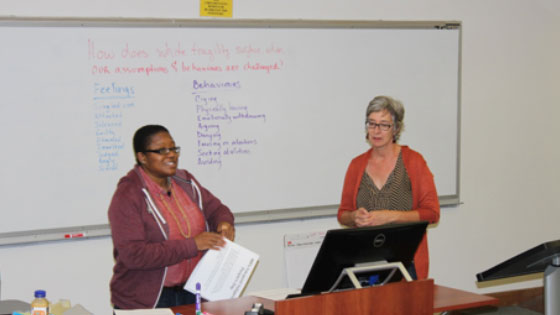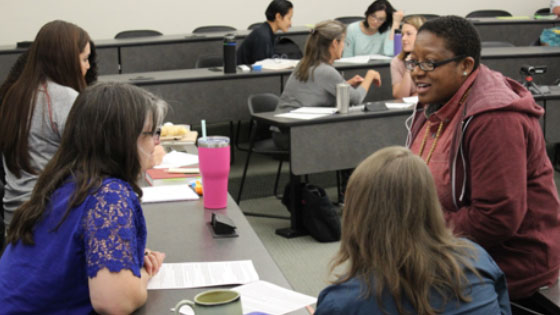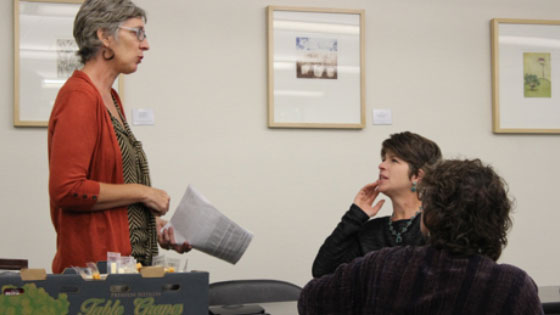Social Justice Lunchbox: How White Supremacy Shows up at the Leadership Table
November 5, 2019 - Sal Guardiola II

Under the Child & Family Justice Initiative, the UNM School of Law holds monthly Social Justice Lunchboxes addressing a variety of topics not otherwise covered in traditional law school classes. On October 14, 2019, the UNM School of Law hosted Monique Salhab, an Iraq War veteran and the Interim Co-Director of the Albuquerque Center for Peace and Justice, and Kendra Toth, an independent consultant with over 10 years of experience in school leadership. Together they presented on the manifestation of white supremacy culture in organizations.
The presentation was both informative and interactive. Salhab and Toth first described their experiences in organizations with strong white supremacy culture and their passion for pursuing practices that would promote healthy organizational culture. Later, using materials from Dismantling Racism: A Workbook for Social Change Groups by Kenneth Jones and Tema Okun, Salhab and Toth asked audience members to divide into small groups and discuss various characteristics of white supremacy culture as listed in the workbook materials.

Some of the characteristics particularly resonated with audience members, many of whom were law students and lawyers. For example, according to the materials by Jones and Okun, one characteristic of white supremacy culture is a sense of urgency that can get in the way of (1) taking time to be inclusive or (2) encouraging thoughtful decision-making. Among the antidotes to the sense of urgency proposed by Jones and Okun are work plans that are realistic as well as understanding from the leadership table that projects may take longer than anticipated. Law students and lawyers in the audience shared how difficult it is to escape the sense of urgency often inherent to the legal system due to multiple deadlines for large caseloads. Nevertheless, they acknowledged how small, intentional changes to approaching workloads could yield greater job satisfaction and retention.

Overall, the presentation provided a space for audience members to reflect on their experiences in different organizational settings, consider what kinds of positive alternatives might exist, and imagine ways they could begin influencing organizational culture.
The next Social Lunchbox will take place on November 13, 2019 addressing the topic of Community Defense in Situations of State Violence. The Lunchbox will start at 12:00 PM and end at 1:00 PM in room 2406 at the UNM School of Law.
To learn more about the Child & Family Justice Initiative, click here.
